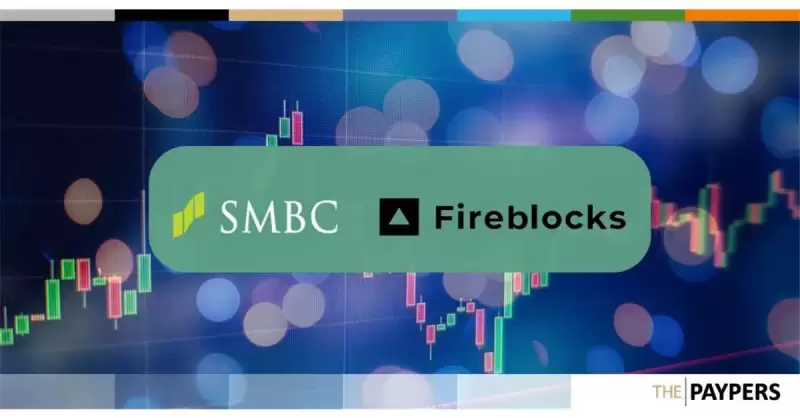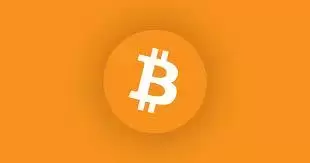 |
|
 |
|
 |
|
 |
|
 |
|
 |
|
 |
|
 |
|
 |
|
 |
|
 |
|
 |
|
 |
|
 |
|
 |
|
Cryptocurrency News Articles
Spot Bitcoin ETFs: Are They Superior to Direct Ownership?
Apr 21, 2024 at 11:21 pm
Spot Bitcoin exchange-traded funds (ETFs) have garnered significant assets within three months of their launch, providing convenient Bitcoin exposure. However, some crypto enthusiasts argue that directly buying Bitcoin is superior to ETFs, citing implications in owning the actual cryptocurrency, including its use as a currency and control over cryptographic keys. Influential investors like Robert Kiyosaki emphasize the importance of direct asset ownership and prefer investing in Bitcoin directly, highlighting the distinction between exposure and true ownership in the crypto realm.

The Great Bitcoin Conundrum: ETFs vs. Direct Ownership
Since their much-anticipated debut three months ago, spot Bitcoin exchange-traded funds (ETFs) have amassed a colossal $30 billion in assets, captivating first-time crypto investors with their ease and convenience. Heralded as the most significant Wall Street product launch in three decades, these ETFs have surged in popularity, prompting an important question: Are they a superior alternative to direct Bitcoin ownership?
This article delves into the nuances of this debate, examining the pros and cons of both approaches to help investors make informed decisions.
Tracking Bitcoin's Price: A Surprising Revelation
Initially, concerns were rife that spot Bitcoin ETFs would encounter difficulties in accurately mirroring the price of Bitcoin. After all, Bitcoin trades incessantly across the globe, while ETFs operate within the constraints of centralized exchanges, limiting after-hours and pre-market activity. Moreover, Bitcoin's notorious volatility was expected to further complicate the task of tracking its price behavior.
However, a detailed analysis conducted in mid-April revealed a surprising result. Using January 12th as a baseline, a comparison of Bitcoin's upward trajectory with that of the top two spot Bitcoin ETFs by market capitalization showed remarkable alignment. During the period under review, Bitcoin's value surged from $46,656 to $62,206, representing a gain of over 33%. Notably, both the iShares Bitcoin Trust (IBIT) and the Fidelity Wise Origin Bitcoin Fund (FBTC) mirrored this growth with identical 33% gains.
As evidenced by the three-month chart provided by TradingView, the two leading spot Bitcoin ETFs have maintained a near-perfect 1:1 correlation with the price of Bitcoin. This suggests that for those solely seeking exposure to Bitcoin's price movements with a long-term investment horizon, there appears to be no compelling advantage to purchasing Bitcoin directly.
The Essence of "Buying Bitcoin"
It is crucial to recognize that when investing in a Bitcoin ETF, one does not truly "buy Bitcoin." Instead, they acquire exposure to the price of Bitcoin. This concept is akin to purchasing an ETF tracking the S&P 500. While such an investment provides exposure to the index's price, it does not confer ownership of individual shares of every company included within it.
This distinction assumes paramount importance in the realm of cryptocurrencies. Bitcoin serves a dual role as both a currency and a commodity. Circumstances may arise where accessing Bitcoin as a currency becomes necessary. For instance, an individual may wish to utilize Bitcoin to settle an airline ticket purchase for an upcoming vacation. However, holding Bitcoin via an ETF precludes such transactions. To utilize the underlying asset, the ETF must be sold, with the proceeds converted into fiat currency.
Within the crypto community, an axiom prevails: "Not your keys, not your crypto." Cryptographic keys represent the sole means of asserting true ownership of Bitcoin (or any cryptocurrency). In the case of Bitcoin ETFs, these keys are held by the ETF issuers, not by the individual investors.
Therefore, should any unforeseen events transpire involving Bitcoin, such as regulatory changes, the options available to ETF holders are severely limited. The ETF issuers, not the investors, would wield exclusive control over the fate of their Bitcoin holdings. Given the historical volatility of government stances on Bitcoin, this poses a significant concern for many investors with substantial Bitcoin positions.
The Influence of "Rich Dads"
When weighing the merits of spot Bitcoin ETFs, it is prudent to consider the insights of influential investors. Robert Kiyosaki, the renowned author of the best-selling book "Rich Dad Poor Dad," recently expressed his preference for direct Bitcoin ownership over Bitcoin ETFs. In his view, "rich dads" embrace Bitcoin, while "poor dads" opt for Bitcoin ETFs. Kiyosaki emphasizes that direct asset ownership is pivotal for wealth creation. He personally invests in physical gold and real estate, rather than their respective ETFs.
This perspective does not imply that Bitcoin ETFs should be dismissed out of hand. For novice crypto investors, they can serve as suitable entry points, particularly in the wake of the fourth Bitcoin halving event. ETFs simplify the complexities of crypto ownership, rendering Bitcoin readily accessible. Investors are absolved from concerns related to cryptographic keys and the intricate workings of Bitcoin miners.
Nonetheless, it is imperative to grasp the fundamental distinction between owning Bitcoin and owning an ETF that tracks its price. In certain instances, this difference could have profound implications.
Disclaimer:info@kdj.com
The information provided is not trading advice. kdj.com does not assume any responsibility for any investments made based on the information provided in this article. Cryptocurrencies are highly volatile and it is highly recommended that you invest with caution after thorough research!
If you believe that the content used on this website infringes your copyright, please contact us immediately (info@kdj.com) and we will delete it promptly.
-

-

- Ozak AI Stands Aside as a Project with Real-world Applications, Leveraging Artificial Intelligence to Convert Blockchain Technology
- Apr 03, 2025 at 07:05 pm
- Hype-driven tokens frequently dominate the market, attracting waves of speculative buyers chasing brief income. Meme coins, specifically, have built a popularity for explosive increase observed by similarly dramatic crashes, leaving many traders with widespread losses.
-

-

-

-

- Democratic Lawmakers Press the SEC to Investigate President Trump's Connections to World Liberty Financial
- Apr 03, 2025 at 06:55 pm
- Democratic lawmakers are pressing the Securities and Exchange Commission (SEC) for details about President Donald Trump's connections to cryptocurrency firm World Liberty
-

- TRON founder Justin Sun alleges that First Digital Trust (FDT) is “effectively insolvent” and unable to fulfill redemption requests.
- Apr 03, 2025 at 06:50 pm
- Sun’s statement follows reports that he intervened to support TrueUSD (TUSD) after it was revealed that $456 million of its reserves were illiquid.
-

- Collecto, the Web3 startup focused around offering fractional ownership of exclusive items such as modern art, luxury watches, etc., has successfully closed its €2.8 million seed-funding round.
- Apr 03, 2025 at 06:50 pm
- This seed funding round comprises of €2.3 million in equity financing, with rest of €500,000 being funded by Italy’s Ministry of Economic Development through its “Smart&Start Italia” program – which supports innovative startups.
-



























































